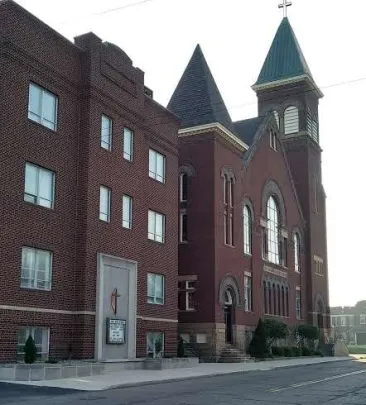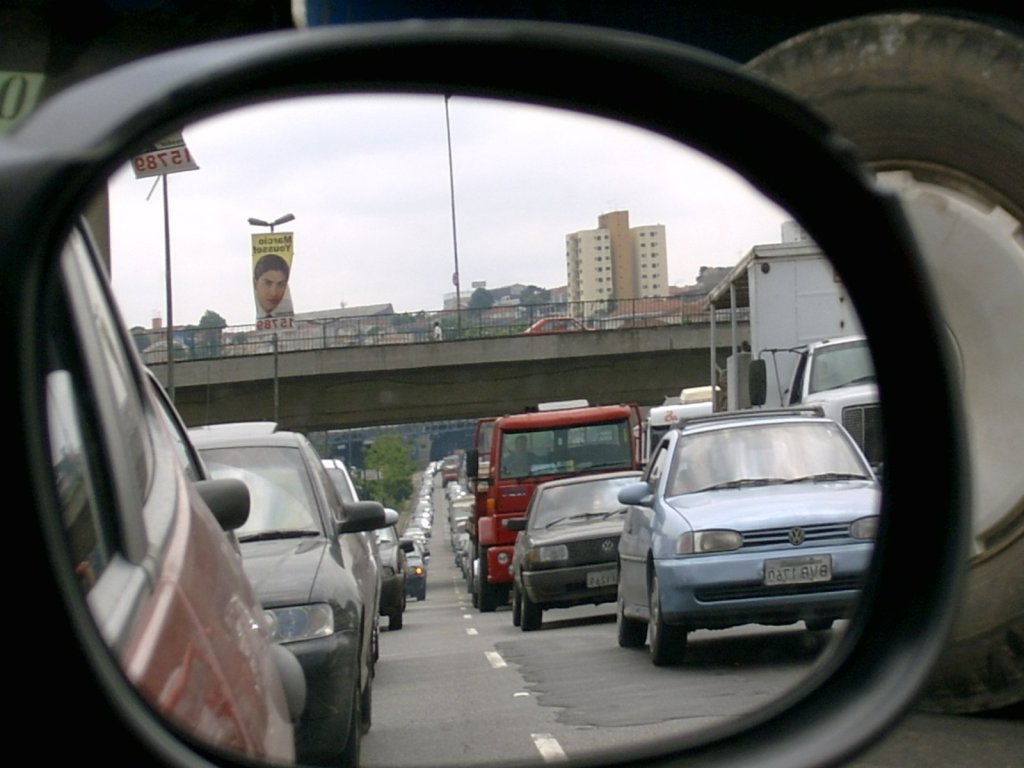Actions Reveal Attitude
May 02, 2021*
By Pastor John Partridge
John 15:1-8 Acts 8:26-40 1 John 4:7-21
“I trust you to make your own decisions” is perhaps one of the most common lies that parents and politicians tell their children and constituents. We might tell our children that we trust them to make their own decisions, but you know we’re looking over their shoulders so we can intervene if they start making bad ones. And politicians are worse. How often have we heard them say that we should let the market decide, and then they pass laws to manipulate the markets. They say that taxpayers know best how to spend their hard-earned money, but then raise taxes because we aren’t spending in the places that they think we should. They say that government shouldn’t subsidize corporate interests, but what they really mean is that we should only subsidize the corporate interests that fund their party machine instead of the other party’s political machine. If you really want to know what a parent, or a politician believes, don’t ask them, watch them. Don’t listen to what they say, watch them and see what they do. A politician that really believes in free markets, supports legislation that supports free markets. A politician that genuinely supports a balanced budget, and I’m not sure that there are any, supports legislation that moves us toward sustainable spending and balanced budgets. If we watch what politicians support, vote for, and donate toward, with their own time and their own money, we get a clearer picture of where their values lie than if we just listen to their sound bites and press releases. In the end, this applies to all of us. Our actions say far more about what we believe that the words that come out of our mouths.
That hasn’t changed in thousands of years and scripture often describes that same principal. We find one such instance in John 15:1-8 where Jesus says:
15:1 “I am the true vine, and my Father is the gardener. 2 He cuts off every branch in me that bears no fruit, while every branch that does bear fruit, he prunesso that it will be even more fruitful. 3 You are already clean because of the word I have spoken to you. 4 Remain in me, as I also remain in you. No branch can bear fruit by itself; it must remain in the vine. Neither can you bear fruit unless you remain in me.
5 “I am the vine; you are the branches. If you remain in me and I in you, you will bear much fruit; apart from me you can do nothing. 6 If you do not remain in me, you are like a branch that is thrown away and withers; such branches are picked up, thrown into the fire, and burned. 7 If you remain in me and my words remain in you, ask whatever you wish, and it will be done for you. 8 This is to my Father’s glory, that you bear much fruit, showing yourselves to be my disciples.
Jesus says that we are the garden and God is the gardener. God cuts off, or prunes, the branches that aren’t bearing fruit. My colleague Allan Bevere commented on this passage and points out that the Greek word here for pruning “is kathairo (καθαίρω) and refers more generally to clearing and in certain contexts cleansing. So, while it is true that pruning, cutting back, is a necessary part of the process of allowing a fruit-producing vine to bear more fruit, John appears to have in mind that is more than simply cutting back a healthy branch in order to produce more; the gardener wants to clear away all the dead vegetation and the clutter that can strangle the branches as well.” We might think of that as God not only pruning off the unnecessary and unfruitful branches, but also the suckers, opening the canopy to allow more sun to penetrate, pulling the weeds around the bottom and raking away the accumulated leaves and clutter. Jesus says that God is working, actively, in his garden so that it, so that we, will be productive and fruitful. If we know him, and if we remain in him, he is working in us, and on us, to make us more fruitful and more productive. If we do not know him, or if we do not remain close to him, them our ability to do anything useful goes to zero. Without our connection to him, we wither and die.
Without our connection to God, we become useless. We have a yard decoration that was made from vines that were woven together. It is, obviously, not connected to the vine from which it came and, other than being temporarily decorative, it is entirely useless. When we lose our connection with God, when we stop living in him, and constantly feeding on the nutrition flowing through the vine, although we might get dressed up, and still be temporarily decorative, we become like that woven vine, decorative, but ultimately useless.
Jesus goes on to say that when we bear fruit, our fruit, and our accomplishment in bearing fruit, is the glory God, and to the credit of God, because God is the gardener that made it happen. But also, our bearing fruit reveals our discipleship to the world. Our actions reveal our attitudes, our loyalty, and our heart condition.
We see this same principle in action in several ways in the story of Acts 8:26-40, in which and angel of God sends Philp to meet an important international visitor.
26 Now an angel of the Lord said to Philip, “Go south to the road—the desert road—that goes down from Jerusalem to Gaza.” 27 So he started out, and on his way, he met an Ethiopianeunuch, an important official in charge of all the treasury of the Kandake (which means “queen of the Ethiopians”). This man had gone to Jerusalem to worship, 28 and on his way home was sitting in his chariot reading the Book of Isaiah the prophet. 29 The Spirit told Philip, “Go to that chariot and stay near it.”
30 Then Philip ran up to the chariot and heard the man reading Isaiah the prophet. “Do you understand what you are reading?” Philip asked.
31 “How can I,” he said, “unless someone explains it to me?” So, he invited Philip to come up and sit with him.
32 This is the passage of Scripture the eunuch was reading:
“He was led like a sheep to the slaughter,
and as a lamb before its shearer is silent,
so he did not open his mouth.
33 In his humiliation he was deprived of justice.
Who can speak of his descendants?
For his life was taken from the earth.”
34 The eunuch asked Philip, “Tell me, please, who is the prophet talking about, himself or someone else?” 35 Then Philip began with that very passage of Scripture and told him the good news about Jesus.
36 As they traveled along the road, they came to some water and the eunuch said, “Look, here is water. What can stand in the way of my being baptized?” 38 And he gave orders to stop the chariot. Then both Philip and the eunuch went down into the water and Philip baptized him. 39 When they came up out of the water, the Spirit of the Lord suddenly took Philip away, and the eunuch did not see him again, but went on his way rejoicing. 40 Philip, however, appeared at Azotus and traveled about, preaching the gospel in all the towns until he reached Caesarea.
This man had come to Jerusalem from Ethiopia which must have been a long and arduous journey. Since he was an important government official, we can assume that he had been conducting official government business while in Jerusalem. Further, we know that he had some wealth of his own because, while in Israel, he had purchased an Isaiah scroll. Such a scroll, being handcrafted and painstakingly handwritten by a trained, professional scribe, would likely have taken nearly a year to produce, and would have cost nearly a year’s wages. From this, and from Philip’s hearing the man reading the scroll, we know that he was not only interested in the faith of the people of Israel, but he was also desperate to learn about it, and actively demonstrated his desire to know God. Unfortunately, his desire to learn was not enough because he couldn’t understand what he was reading.
But remember that we are the garden and God is the gardener. God saw his desire to know him as well as how the man had demonstrated that desire through his actions. And so, God cleared away the clutter, and sent Philip to meet him on the road, at just the right time, explain the meaning to him, and tell him the story of Jesus’ life, death, and resurrection that had been foretold by Isaiah. And again, the man demonstrates his understanding with his actions. His understanding of Isaiah, and the gospel message proclaimed by Philip, led him insist that he be baptized, and to faith and discipleship in Jesus Christ.
In his letter to the church and to the followers of Jesus Christ in Asia, John gives examples of how our beliefs, our faith, and our connectedness to God direct our everyday lives and our actions and therefore become visible and obvious to the people around us (1 John 4:7-21). He says:
7 Dear friends, let us love one another, for love comes from God. Everyone who loves has been born of God and knows God. 8 Whoever does not love does not know God, because God is love. 9 This is how God showed his love among us: He sent his one and only Son into the world that we might live through him. 10 This is love: not that we loved God, but that he loved us and sent his Son as an atoning sacrifice for our sins. 11 Dear friends, since God so loved us, we also ought to love one another. 12 No one has ever seen God; but if we love one another, God lives in us and his love is made complete in us.
13 This is how we know that we live in him and he in us: He has given us of his Spirit. 14 And we have seen and testify that the Father has sent his Son to be the Savior of the world. 15 If anyone acknowledges that Jesus is the Son of God, God lives in them and they in God. 16 And so we know and rely on the love God has for us.
God is love. Whoever lives in love lives in God, and God in them. 17 This is how love is made complete among us so that we will have confidence on the day of judgment: In this world we are like Jesus. 18 There is no fear in love. But perfect love drives out fear, because fear has to do with punishment. The one who fears is not made perfect in love.
19 We love because he first loved us. 20 Whoever claims to love God yet hates a brother or sister is a liar. For whoever does not love their brother and sister, whom they have seen, cannot love God, whom they have not seen. 21 And he has given us this command: Anyone who loves God must also love their brother and sister.
Since we are supposed to remain in God, and be connected to God, then God’s nature should flow through us into the people, and into the world, around us. And, John argues, since God’s nature is love, then that nature should also become our nature as well. When we are in love with God and when have the love of God in us, then we begin to lose our fear of the future, our fear of current events, and our fear of judgement and punishment. And that loving nature will be shown, and actively demonstrated, through our actions. If we are connected to God, and God is love, and if that connectedness flows through us, then it will, logically, flow out of us through our actions. And when God’s love flows out of us, then hate becomes impossible, and we will love the people around us, all of the people around us, the way that God loves them.
Just like the parents and politicians, it isn’t hard to see where the hearts, minds, values, and attitudes of Christian are if we stop listening to what they say and watch to see what they do and how they live. Our actions reveal our attitudes. If we are in love with God, and if we remain connected to Jesus, then his love will flow through us into the world.
Our neighbors will be able to see that we are connected to Jesus by the things that we do, the way that we behave, by our actions, and the way that we live our lives.
And they will know we are Christians…
…by our love.
You can find the video of this worship service here: https://youtu.be/7u25wb0cemQ
Did you enjoy reading this?
Click here if you would like to subscribe to Pastor John’s weekly messages.
Click here to subscribe to Pastor John’s blog.
Click here to visit Pastor John’s YouTube channel.
*You have been reading a message presented at Christ United Methodist Church on the date noted at the top of the first page. Rev. John Partridge is the pastor at Christ UMC in Alliance, Ohio. Duplication of this message is a part of our Media ministry, if you have received a blessing in this way, we would love to hear from you. Letters and donations in support of the Media ministry or any of our other projects may be sent to Christ United Methodist Church, 470 East Broadway Street, Alliance, Ohio 44601. These messages are available to any interested persons regardless of membership. You may subscribe to these messages, in print or electronic formats, by writing to the address noted, or by contacting us at secretary@CUMCAlliance.org. If you have questions, you can ask them in our discussion forum on Facebook (search for Pastor John Online). These messages can also be found online at https://pastorpartridge.wordpress.com/. All Scripture references are from the New International Version unless otherwise noted.





